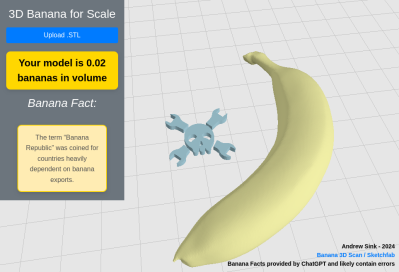THE ANONYMOUS

Have you noticed any apps missing from your Android phone lately? We haven’t but then again, we try to keep the number of apps on our phone to a minimum, just because it seems like the prudent thing to do. But apparently, Google is summarily removing apps from the Play Store, often taking the extra step of silently removing the apps from phones. The article, which seems to focus mainly on games, and has a particular bone to pick about the removal of RPG Wayward Souls, isn’t clear about how widespread the deletions are, or what exactly the reason behind the removals could be. But they sure are exercised about it, and rightly so since in some cases the deleted games have actually been paid for by the users, and Google pretty much says that if you think you’re getting a refund, think again. They make some interesting points, such as this being the very definition of larceny, while also acknowledging that in all likelihood Google has a get-out-of-jail-free card buried in some EULA somewhere permitting them to do exactly what they’re doing. Google’s gonna Google, right?
We ran across a strange story this week, from Guam of all places, where it’s reported that the Coast Guard is suffering from a VHF radio outage. This is a big deal for the marine community, who spend a fair amount of money equipping boats with marine band VHF radios exactly for occasions where they need to get in touch with the Coast Guard right away. The outage is said to have started on January 12 as the result of “a routine and pre-planned router relocation.” That makes it sound a little like someone was doing a planned upgrade and ran into problems getting the system back together, especially since they also state that techs are visiting remote towers to fix things. It sounds like a pretty serious outage, with the Coast Guard warning mariners to make sure they have alternatives such as cell or satellite phones available. They also recommend HF radios, which we believe are more likely to be found on large ships than pleasure craft or other small craft.
It might not do filmmaker M. Night Shyamalan any good now, but it turns out that the premise of his famous flop The Happening might not be so far-fetched after all. In that film, a wave of mass suicide sweeps the world, driven by neurotoxins emitted by plants, which apparently have had enough of the human race. We’ve known for quite some time that plants communicate with each other, of course, but now there’s visual confirmation of interplant communications, and it’s pretty stunning. Using every plant biologist’s favorite model organism, Arabidopsis thaliana, researchers rigged up a system to pump air from injured or insect-ravaged plants into containers with genetically modified plants. Using fluorescence microscopy, they were able to see waves of calcium channels opening as the volatile compounds from the challenged plants wafted over their uninjured counterparts. It’s a bit of a reach to go from that observation to people jumping off buildings or trying to pet the lions at the Philadelphia Zoo, but it’s a start.
Good news, everyone — Raspberry Pi production has really ramped up. Up to 70,000 units a week of the Pi 5 are now being made, with plans to work up to an amazing 90,000 units per week soon. That apparently includes both the 8 GB and the 4 GB versions of the popular SBC. What’s more, CEO Eben Upton reports that Pi 4s are being produced at a similarly torrid pace.
 And finally, if you’re like us, and you’re sick of the constant bickering and arguing over metric versus imperial — a pot we’ve admittedly stirred a time or two ourselves — here’s a chance to get beyond all that and embrace the One True Unit — the banana. To help us reach that lofty goal, Andrew Sink has kindly provided this handy 3D Banana for Scale tool, wherein you can compare any of your models with a 3D scan of a standard banana. Just upload your STL and it appears next to said banana along with indications of how many banana-equivalents your model occupies. Plus fun ChatGPT-generated banana facts, which are 100% reliable. We’re not sure exactly which banana was scanned for this purpose, but we suppose it’s one that’s kept in a bell jar in some laboratory in Paris, the ones where they keep the pots of boiling rubidium and platinum sticks that were used as standards in a less-enlightened time.
And finally, if you’re like us, and you’re sick of the constant bickering and arguing over metric versus imperial — a pot we’ve admittedly stirred a time or two ourselves — here’s a chance to get beyond all that and embrace the One True Unit — the banana. To help us reach that lofty goal, Andrew Sink has kindly provided this handy 3D Banana for Scale tool, wherein you can compare any of your models with a 3D scan of a standard banana. Just upload your STL and it appears next to said banana along with indications of how many banana-equivalents your model occupies. Plus fun ChatGPT-generated banana facts, which are 100% reliable. We’re not sure exactly which banana was scanned for this purpose, but we suppose it’s one that’s kept in a bell jar in some laboratory in Paris, the ones where they keep the pots of boiling rubidium and platinum sticks that were used as standards in a less-enlightened time.
from Hackaday https://ift.tt/bBUprqR
No comments: